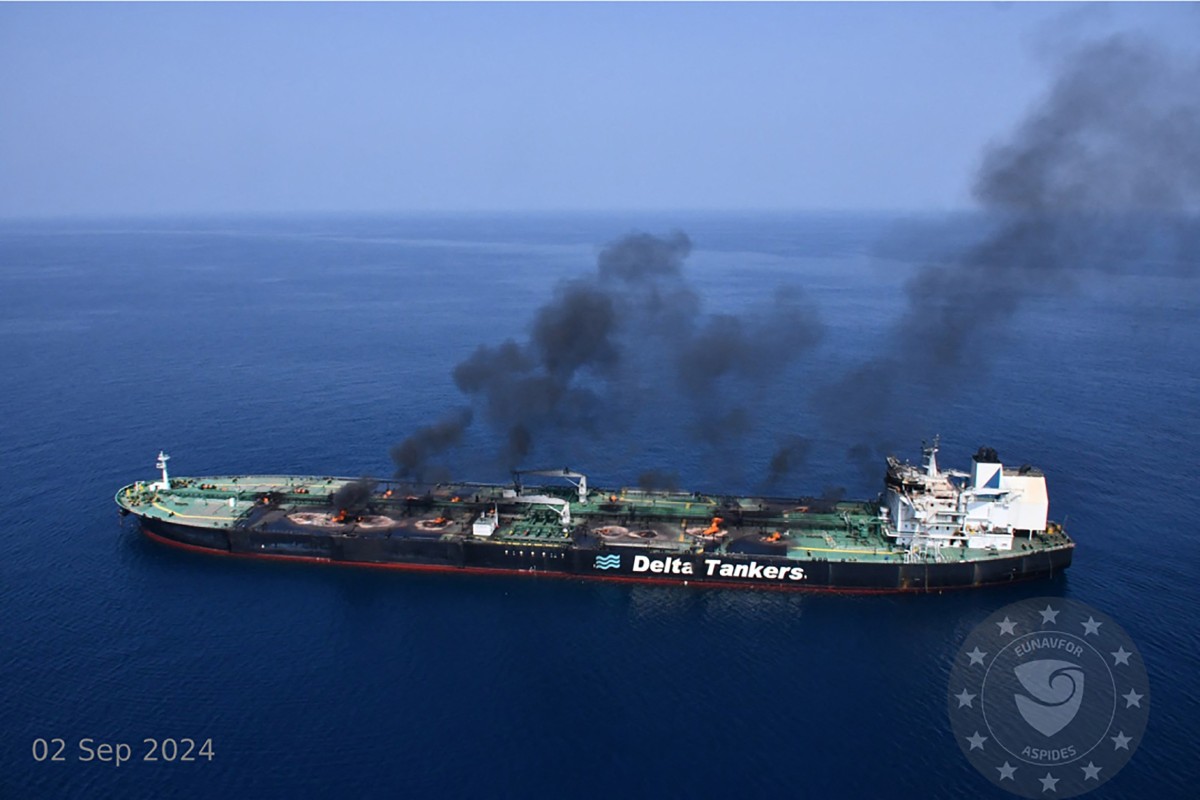An abandoned tanker carrying more than one million barrels of crude oil could contaminate vast areas of the Red Sea in a severe, long-term environmental disaster if it breaks up or explodes, experts warn.
The Greek-flagged Sounion, struck on August 21 by Yemen’s Huthi rebels, was still on fire as recently as Saturday, maritime monitors said.
Threatening an oil spill four times the size of the 1989 Exxon Valdez disaster off Alaska, a leak or on-board blast could cause almost irreparable damage, said Julien Jreissati, Middle East and North Africa program director at Greenpeace.
“Once released, an oil spill of this magnitude could be nearly impossible to contain, spreading contamination across vast areas of seawater and coastlines,” Jreissati told AFP.
“The long-term impacts on marine biodiversity could be devastating, with oil residues potentially persisting in the environment for years or even decades.”
The Huthis have been firing drones and missiles at ships in the vital commercial route since November, saying they are targeting vessels linked to Israel, the US and Britain in a show of solidarity with Palestinians over the Israel-Hamas war in Gaza.
The Sounion, carrying 150,000 tons of crude oil, lost engine power and caught fire after the initial strike, forcing the evacuation of its 25 crew members by a French frigate serving with the European Union’s Aspides force, which is patrolling the area.
The Huthis then returned and detonated charges on the ship’s deck, setting off new fires. It is anchored west of the rebel-held port city of Hodeida, midway between Yemen and Eritrea.
‘Extremely hazardous’
An attempt by private companies to tow away the burning ship was abandoned because it was “not safe” to proceed, Aspides, which was guarding the tug boats involved, said last week.
“Given that the vessel is a large, heavily laden oil tanker, now immobilised and on fire, the situation is extremely hazardous and unpredictable,” Jreissati said.
“The potential for a major environmental disaster is significant as the vessel could break apart or explode at any time.”
The 10-month Huthi campaign against shipping has killed at least four sailors and sunk two ships, including the Rubymar, which went down in March carrying thousands of tonnes of fertiliser.
The Sounion, however, poses the gravest danger yet.
“This situation is an environmental catastrophe slowly unfolding in front of our eyes,” said Wim Zwijnenburg of Dutch peace-building group PAX.
The Joint Maritime Information Center, run by an international naval coalition, on Saturday said daily surveillance flights had reported “several” fires on deck but no visible cargo oil slick.
A salvage and firefighting operation was expected to start this week.
“Minor oil slicks were detected in some satellite images, likely linked with burned oil after the explosions or from the engine,” added Zwijnenburg.
But “there has been no indication of a crude oil spill from the cargo that the ship is carrying”.








